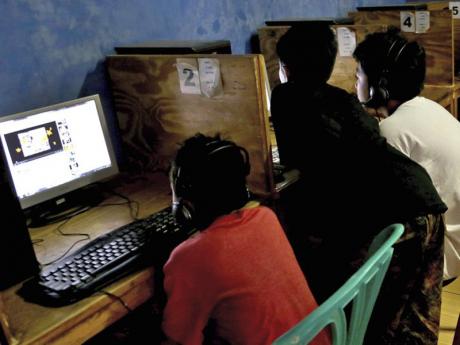Advocates condemn psychological techniques used to keep kids online
CHICAGO (AP) — Children’s advocates want the American Psychological Association to condemn the technology industry’s practice of using persuasive psychological techniques to keep kids glued to their screens.
The advocates, citing research that links excessive use of social media and video games with depression and academic troubles, say it’s unethical for psychologists to be involved in tactics that risk harming kids’ well-being.
Sceptics say the research is inconclusive, and they note that psychologists have been involved in other industries’ marketing and advertising for decades.
The group seeking intervention includes 60 U.S. psychologists, researchers, children’s advocates and the Children’s Screen Time Action Network, a project of the Boston-based Campaign for a Commercial-Free Childhood.
The network was publishing a letter Wednesday to the American Psychological Association, coinciding with the association’s annual meeting in San Francisco.
“There are powerful psychology principles and technology that are being used against kids in ways that are not in their best interests,” said Josh Golin, executive director of the Campaign for a Commercial-Free Childhood.
That technology uses computers to help figure out what motivates people and influence their online behaviour.
It’s built on age-old tenets of behavioural psychology that marketers and advertisers have long used to get people to buy their products.
The difference is smartphones are ubiquitous and unlike human marketers, they don’t get tired, said B.J. Fogg, a behavioural scientist at Stanford University who has been called the technology’s pioneer.
Fogg said he has aimed to use persuasive technology to enhance people’s lives.
But he also said he has long warned that it has a “dark side,” including the potential loss of privacy and the potential for encouraging behaviour that isn’t in users’ best interests.
The letter to the psychology association cites a recent study that found that teen girls who spend a lot of time on digital devices, including on social media, are at risk for depression and suicidal behaviours. That study couldn’t show whether depressed girls might be more prone to using social media than other teens.
The letter also notes evidence that some teen boys overuse video games “at the expense of obtaining real-world competencies,” including college educations and jobs.
We want to hear from you! Send us a message on WhatsApp at 1-876-499-0169, email us at editors@gleanerjm.com or onlinefeedback@gleanerjm.com.

